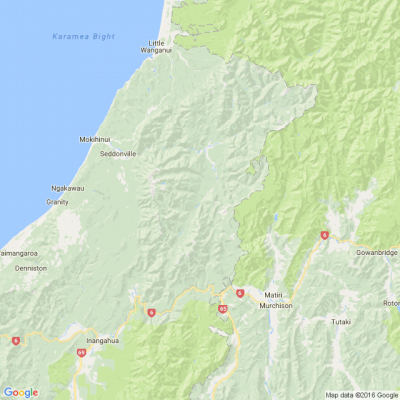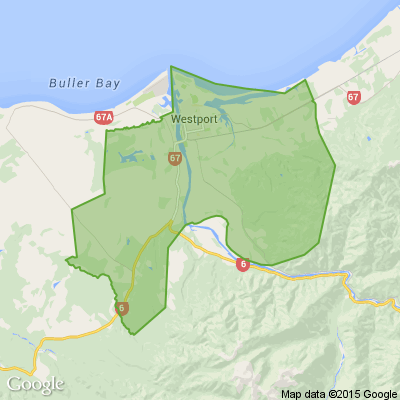Coastal plan goes back to drawing board
By local democracy reporter Lois Williams:
The West Coast Regional Council (WCRC) is going back to the drawing board to come up with a new Coastal Plan, controlling what can and can’t be done or built on the foreshore.
Regional Coastal Plans are a requirement under the RMA for all regional authorities, to manage the coastal marine area - stretching for mean highwater springs to 12 nautical miles offshore.
They regulate the activities the council will allow in that area; they must give effect to the New Zealand Coastal Policy statement, and they must be reviewed every 10 years.
But the WCRC’s last attempt to update its Coastal Plan was never completed, mainly because of staff shortages, and parts of it are now well out of date.
Chief executive Darryl Lew asked councillors this month for approval to withdraw the old plan and start again.
“A lot of the resources of this council have been going into the Tai o Poutini (district) Plan, which we run but don’t govern and we’ve not been able to pursue our own regional plans, which are actually our work,” he said.
In the past few weeks, Regional Council staff had begun focusing on that work including the Coastal and Air Quality plans.
A staff report outlining the issues and options in a new coastal plan said the main activities needing regulation in the CMA were temporary whitebait stands, hard protection structures (seawalls), gravel and sand removal, and small-scale beach mining.
The council grants an average six or seven resource consents for activities a year and has dealt with 29 incidents involving those consents in the past four years.
Most commonly, they involved the removal of beach material within Coastal Hazards Areas, and flood protection structures.
The main concerns for iwi, consulted under the council’s Mana Whakahono agreement, were offshore seabed mining and the discharge of untreated sewage into the ocean, staff reported.
That was culturally offensive to Poutini Ngai Tahu, but the coast’s three main centres all pumped treated wastewater out to sea, and there were limited options for land-based disposal, the report noted.
The regulatory options were to require the urban sewage to be treated to a high standard, consult with iwi over resource consents, and proactively monitor those consents.
Buller councillor Frank Dooley had concerns about possible restrictions on seawalls, discouraged as ’hard protection structures’ which could cause erosion, in the national policy directive.
“We have to recognise that at times they are the only option,” he said.
Councillor Brett Cummings agreed.
“Down at Haast at the moment they’re putting in rock (defences) to protect the power poles – we don’t want to get in the way of that.”
Dooley also challenged a staff suggestion that seawalls could be treated as restricted discretionary activities in the new plan.
But the word “restricted” referred to council’s powers to regulate and was in fact favourable to the applicant, the chief executive explained.
“With these plans, you are the governors, and you have a chance to say what you want in them. I would urge you to get involved in the workshops and you will end up with the plans you want,” Lew said.
Councillors voted unanimously to withdraw the old unfinished Coastal Plan and start work on the new one.
The council is aiming to begin consultation with stakeholders next month, and have the plan notified and out for public submissions in early 2026.
*LDR is local body journalism co-funded by RNZ and NZ On Air.

Poll: Should the government levy industries that contribute to financial hardship?
As reported in the Post, there’s a $30 million funding gap in financial mentoring. This has led to services closing and mentors stepping in unpaid just to keep helping people in need 🪙💰🪙
One proposed solution? Small levies on industries that profit from financial hardship — like banks, casinos, and similar companies.
So we want to hear what you think:
Should the government ask these industries to contribute?

-
59.8% Yes, supporting people is important!
-
25.8% No, individuals should take responsibility
-
14.4% ... It is complicated
A Neighbourly Riddle! Don’t Overthink It… Or Do?😜
Do you think you know the answer? Simply 'Like' this post if you know the answer and the big reveal will be posted in the comments at 2pm on the day!
If you multiply this number by any other number, the answer will always be the same. What number is this?

Have you got New Zealand's best shed? Show us and win!
Once again, Resene and NZ Gardener are on the hunt for New Zealand’s best shed! Send in the photos and the stories behind your man caves, she sheds, clever upcycled spaces, potty potting sheds and colourful chicken coops. The Resene Shed of the Year 2026 winner receives $1000 Resene ColorShop voucher, a $908 large Vegepod Starter Pack and a one-year subscription to NZ Gardener. To enter, tell us in writing (no more than 500 words) why your garden shed is New Zealand’s best, and send up to five high-quality photos by email to mailbox@nzgardener.co.nz. Entries close February 23, 2026.







 Loading…
Loading…





